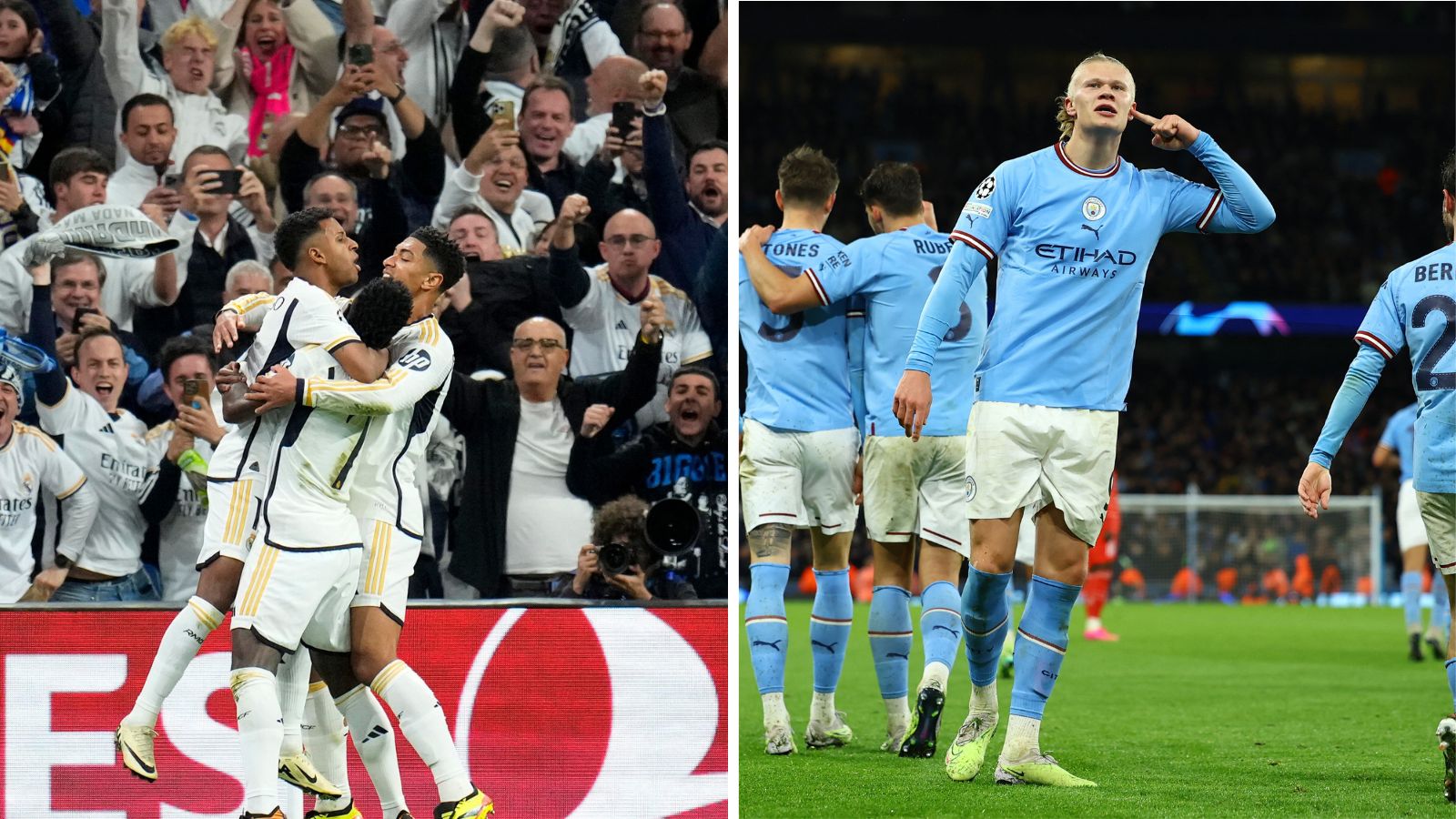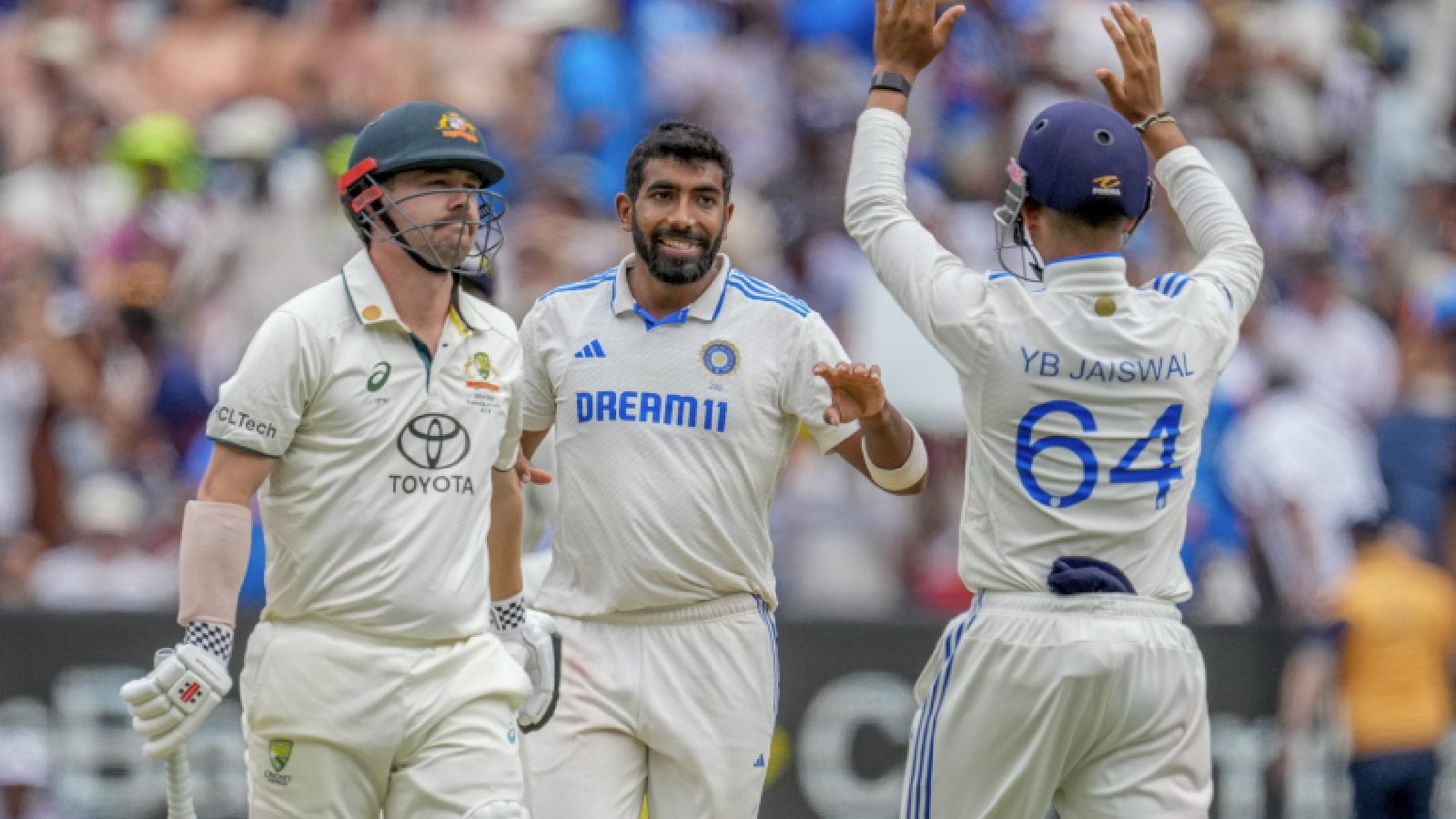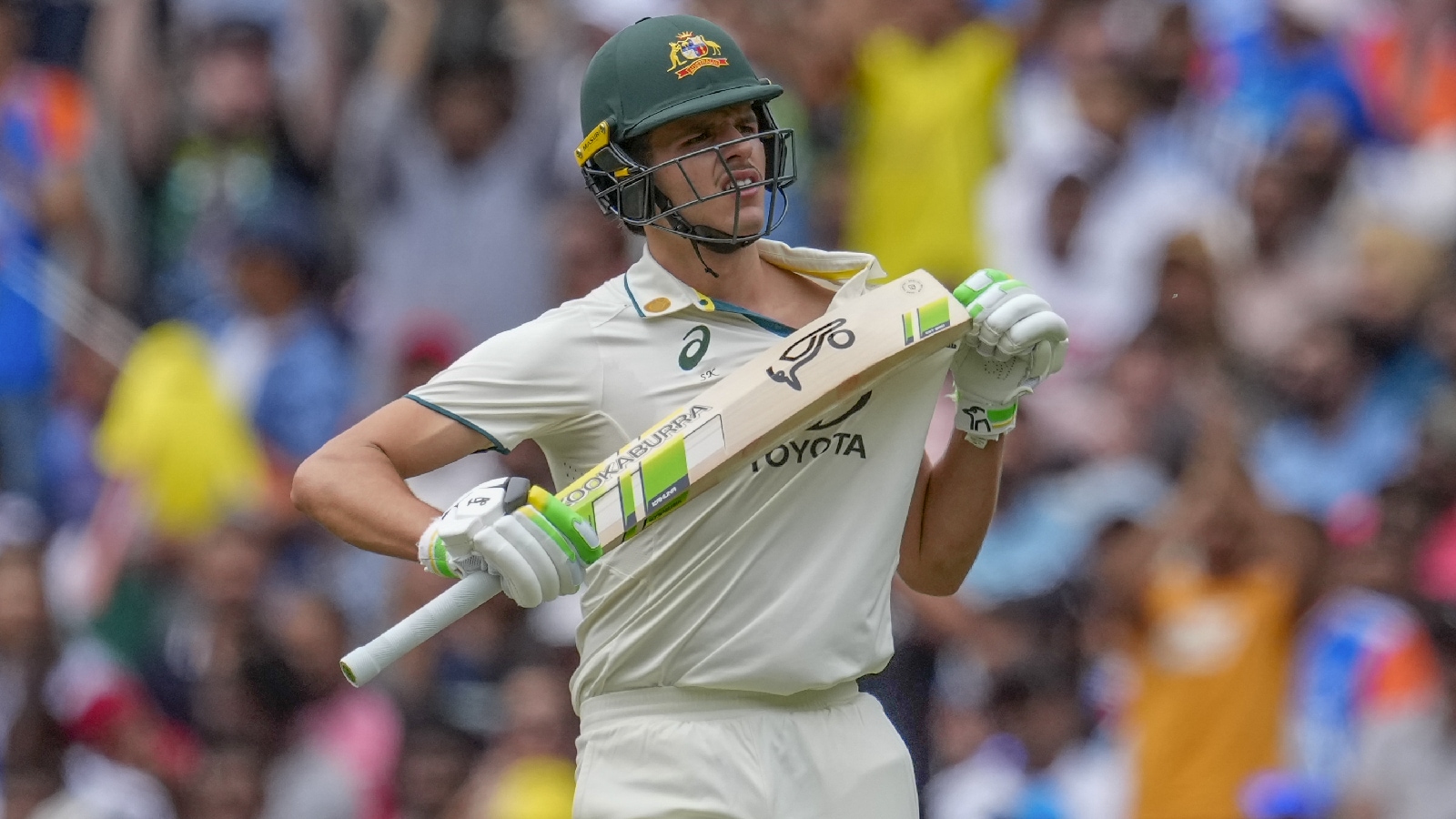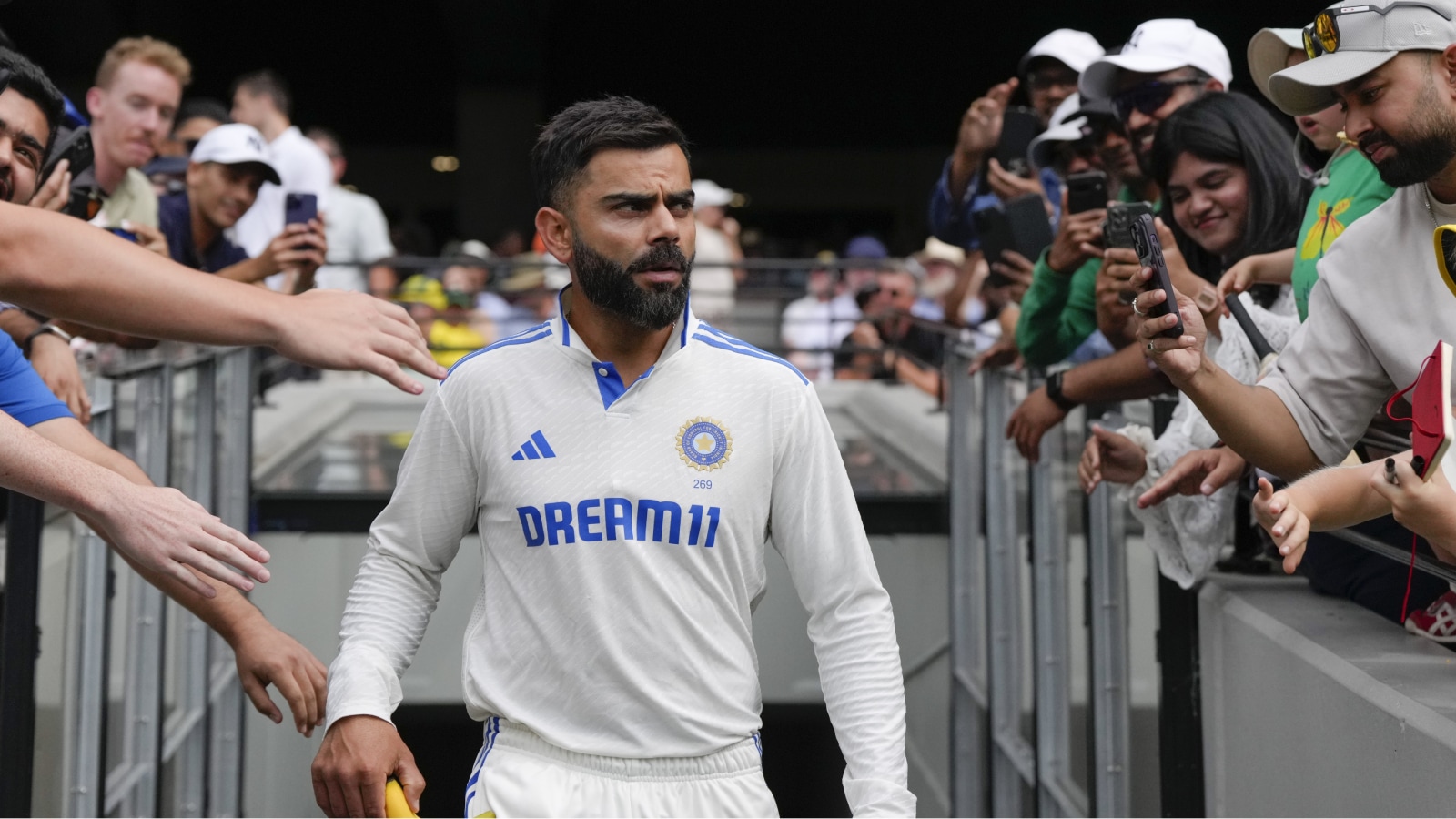One can’t think of the Champions League over the past five years without thinking of Real Madrid against Manchester City. Such is the nature of sport that big-ticket contests seldom live up to their billing. However, drawn four times during the past five seasons over two-legged knockout ties, this one surely has.
Laced with tons of goals – an average of 4.3 per game – and iconic subplots, it’s been the showcase of some of the finest talents in modern football, on the pitch and the sideline.
“They have always been spectacular games. Tomorrow will be the same, a spectacular game and very entertaining,” Real Madrid manager Carlo Ancelotti proclaimed on the eve of their latest meeting in Manchester.
For starters, it feeds off the much relatable ‘old vs new’ storyline. Real have been the traditional powerhouses of Europe. City are modern-day behemoths, having only emerged as serious title contenders during the aforementioned timeline. There’s also the history and ownership background that differentiates the two. Madrid were nominally linked to the Spanish monarchy in the early 20th century, a nation-state team. City have been vilified for their UAE ownership, benefitting from ‘oil money’. In a more-or-less closed football ecosystem at the top club level, it’s unique among the more traditional rivalries in football.
The two teams don’t play that often but when they do, stakes are high. That the rivalry has blossomed at a time when the two clubs have faced little opposition at home amps up its stature. In Spain, Madrid’s El Clasicos with Barcelona have turned out to be bleak affairs in recent times. In England, City’s success has given them bragging rights over Manchester United, a club with a trophy-laden past.
The two managers are the ones who must be credited with upping the ante the most. One of the best man-managers and problem-solver in Carlo Ancelotti has found his match in nerdy tinkerman Pep Guardiola. It’s how the two have evolved against each other, learning from their mistakes, cancelling each other’s tactics, that has shaped this blockbuster affair over the years.

2020, Round of 16
City started the first leg without a striker before going 1-0 down off an Isco strike. Guardiola then changed tactics and brought on Raheem Sterling from the bench and deployed him as a forward, reverting to a more familiar set-up which ended up paying dividends as Gabriel Jesus and Kevin de Bruyne went on to score in the second half to hand City a win and a slim advantage. In the second leg, which was played behind closed doors at the Etihad due to Covid restrictions, City would again get the better of the transitioning Real Madrid with a 2-1 victory that sealed their place in the quarterfinals. The two errors from Raphael Varane inside his own half that led to goals for City furthermore solidified the belief that this Madrid side needed an overhaul.
2022, Semi-finals
Under Ancelotti, Madrid had become a reformed team with players like Vinicius Junior and Rodrygo having more experience of playing under the bright lights, in addition to a certain Karim Benzema in imperious form across two legs. The French striker found the target three times in the first leg at the Etihad but City still held a 4-3 advantage going into the second leg. At Bernabeu, a round of speed chess ensued. Ancelotti used Fede Valverde to accompany Luka Modric as a second number 10. The Italian had benefited from the move all through the season, but Guardiola had done his homework. City countered on the central advantage by offering Madrid’s double pivot too little space to operate in, their far side winger dropping in to curb Madrid’s far side number 10. It seemed like a done deal when Riyad Mahrez scored for City in the 73rd minute. But then, to many a raised eyebrow, City took the foot off the pedal in the closing stages and withdrew Mahrez to bring in Fernandinho as a defensive reinforcement. This, against a team that had already mounted two late comebacks in the knockouts.
“It is the history of this club,” Ancelotti would say afterwards for good measure.
Real threw in more attacking numbers, Rodrygo came off the bench and spread the game down the wings as City’s backline grew tired and jittery. The goals conceded were inevitable goals and came in a breeze – two from Rodrygo in the 90th and 91st minute before Benzema sealed the deal with a penalty in the early minutes of extra time.
No wonder Pep Guardiola said what he did after the 3-3 draw last week in Madrid. “It’s the Bernabeu, my friend. This game in the first one, two or three seasons, we would have lost 4-1 or 5-1. We were not stable emotionally. In these games, one of the key points is being stable emotionally. It’s fundamental.”
2023, Semi-finals
City were definitely stable over the course of the two legs. More familiar with the history of Madrid that Ancelotti had stressed on. Holding a slender advantage after the first leg away, Guardiola and Co went all in at home, blowing away Real 4-0 at the Etihad.
Madrid’s wide forays had played a big hand in securing the title last season. It’s a trait some of the best Madrid teams have boasted. City gave a taste of their own medicine to the 14-time Champions League winners. Both Jack Grealish and Bernardo Silva looked extremely comfortable in holding the shape on both flanks. When they did cut inside, the two number eights on respective sides – De Bruyne and Ilkay Gundogan – were open to making overlapping runs. As a result, the Madrid full-backs were, more often than not, in a two-vs-one situation. As for Madrid’s own wide options, the Vinicius outlet was closed down effectively by John Stones and Kyle Walker.
Noticeably, off the little plays of possession they had, Madrid didn’t switch play to the right when City bombarded numbers down the left side. Even a year later, Ancelotti didn’t hesitate in conceding, “We played without courage, without personality.”
2024, Quarter finals
The lack of courage and the personality their coach rued was accounted for last week. Real went behind twice, and came back twice. It was a night of breathtaking goals, four of which were scored from outside the box. Here’s the kicker though: the foundation of this year’s first leg contest between the two may have been sown last year, at Bernabeu. The draw in the first leg featured two sweet outside-the-box strikes, as was the case in their first leg meet last year. Speaking to The Indian Express, UEFA A Licensed Coach David Garcia had termed it as a teaser into the future of football. One that’ll require players who can score goals in less space and time.
“I believe that both teams and individual players will have to improve their ability to score from farther distances. This will mean that teams cannot simply sit in with eight or nine players in the penalty area because they will have to step out to defend long shots,” he said.
“This is only logical. The teams have got better at defending spaces. Not to mention, how well prepared players are to cover larger spaces in a shorter time. All of this leads to teams defending the ‘golden zone’, the area of high percentage Expected Goals in the penalty area, more heavily,” Garcia elaborated.
It’s a dynamic cycle. “The more they step out to defend, the more spaces there will be in the penalty area which means different scoring options. A cat-and-mouse game.” And no two European behemoths play it better than City and Madrid.
I’m Manas Ranjan Sahoo: Founder of “Webtirety Software”. I’m a Full-time Software Professional and an aspiring entrepreneur, dedicated to growing this platform as large as possible. I love to Write Blogs on Software, Mobile applications, Web Technology, eCommerce, SEO, and about My experience with Life.






